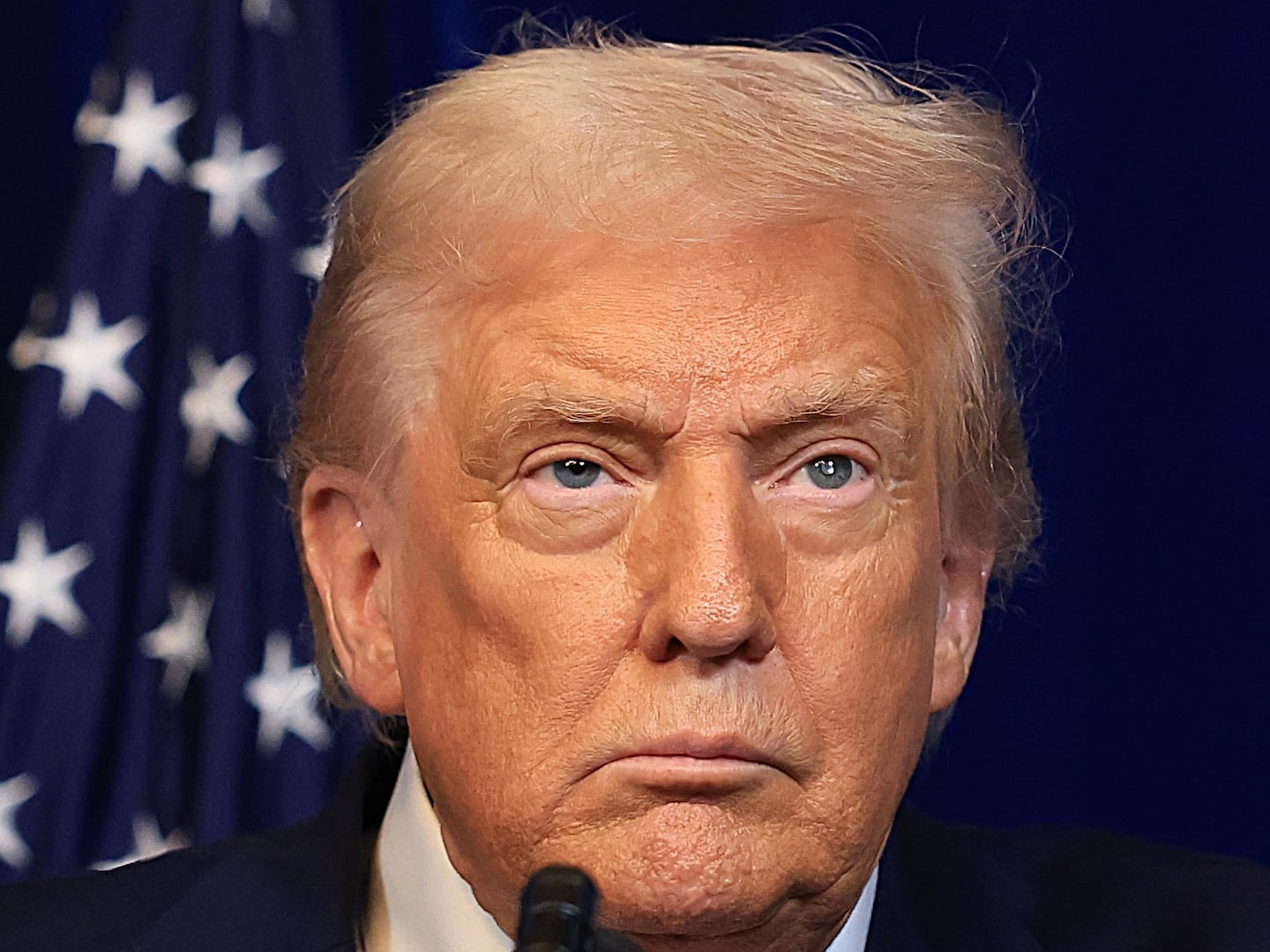Camera shutters clicked as furiously as they had at countless red-carpet events. The media mob called out to the familiar mogul just as so often before.
“Harvey! Harvey! Harvey!”
But the event was not some glittering film festival opening. Harvey Weinstein had come at the decidedly untinseled time of 7:22 a.m. on Friday to surrender on multiple sexual-assault charges. The immediate mystery was why he was carrying three books when he stepped from the back of a grey Toyota SUV outside the First Precinct station house.
One volume was Elia Kazan: A Biography, by Richard Schickel; another, Something Wonderful: Rodgers and Hammerstein’s Broadway Revolution, by Todd S. Purdum. A third was covered by a brown leather cover, perhaps a journal.
But along with the question of the why he had chosen these particular books was the question of why he had any at all as he went up the two worn stone steps of the 106-year-old structure.
Could he have imagined that he would be allowed to carry the books through his booking? Did the mogul picture himself sitting around reading during the brief time before he was released on prearranged bail? Was he at all surprised that he only got as far as the front desk with them?
“Get rid of them now,” a lieutenant commanded.
Weinstein was without his books at he was escorted on into the prisoner area by Sgt. Keri Thompson and Detective Nicholas DiGuadio of the NYPD Special Victims Division, who had been waiting out front when he arrived. A third SVU detective was already inside.
The SVU had done remarkable investigative work and the detectives now live-scanned two sets of fingerprints and filled out two online booking sheets, one for each of the women he is charged with assaulting. Weinstein then sat in the holding cell.
“He knew not to say anything and seemed to have been told what to expect,” the lieutenant said afterward of Weinstein. “He was well schooled I would say.”
The lieutenant decided that the books may have been props.
“I’m guessing those books were placed by some consultant,” the lieutenant said. “Why wouldn’t you leave in the car what you wouldn’t be allowed to take? I’m sure it was some stylist.”
That would suggest Weinstein and people around him somehow imagine he has an image left to protect. Was it at all possible that along with a spurious general suggestion that rapists don’t carry around books, the titles were significant? But exactly how?
Even if the books had not been taken away, Weinstein would have been unable to carry them when Thompson and DiGuadio led him back out onto Ericsson Place in Tribeca.
The onetime cultural king of this Manhattan neighborhood had his hands cuffed behind him. His girth had required the police to link two sets of cuffs with a third. He was wearing a dark blue suit, a baby-blue sweater, and a white shirt.

For a moment, he actually smiled, as if the shuffling of realities had caused him to lose all sense of why he was there. The smile was gone when he arrived at the court building minutes later.
Thompson and DiGuadio each held Weinstein by an upper arm as they led him from the holding area into the arraignment part of the first floor. Weinstein looked apprehensive for an instant as he peered through the open door, but apparently saw only what he had been told to expect. He relaxed back into a reptilian remove.
For a moment, Thompson and DiGuadio stood with him in the middle of the courtroom, seemingly unsure what to do with this monstrosity whose fame had turned to infamy. They then decided to seat him in corner area where any other prisoner would go.
Thompson said something to another detective and the two laughed. Weinstein stared straight ahead. This might have been an opportunity to pass the time reading, only the books were gone and there remained an essential literary truth that anybody could have anticipated.
You can’t turn pages when you are handcuffed.
Weinstein’s lawyer, Ben Brafman, had arrived and was over at the other side of the well, conferring with Justin Barry, Chief Court Clerk of Manhattan County, about the bail.
Brafman was holding Weinstein’s passport. The lawyer took a few moments to go through the criminal complaints against his client, a few brief paragraphs that could leave Weinstein with as many as 25 long years to read whatever might be in the prison library.
“Quiet please!” a court officer then called out. “2018 NY02397. Harvey Weinstein.”
Thompson and DiGuadio instructed Weinstein to rise. They led him up to the bench where Judge Kevin McGrath sat in black robes.
“Defendant charged with Rape First Degree, Criminal Sexual Act First Degree, Rape Third Degree,” the court officer said.
The lead prosecutor in the case, Joan Illuzzi-Orbon, noted to the court that the charges against Weinstein were the result of months of investigation and involve two violent felonies committed against two separate women.
“That investigation reveals that this defendant used his money, position and power to lure young women into situations where he was able to violate them sexually,” she said. “Our investigation is ongoing and we encourage other survivors to come forward.”
Illuzi-Orbon is best known for having secured a conviction in 2017 for the murder of 6-year-old Etan Patz, who had vanished in 1979. She happened to be starting the court case against Weinstein on the 39th anniversary of Etan’s disappearance.
The Weinstein case was commencing with the prosecution and the defense already agreed on $1 million bail. Brafman now handed the cashier’s check written for that amount to the court clerk. Brafman also surrendered his client’s passport to the prosecution as part of an agreement that Weinstein would stay within the confines of New York and Connecticut.
The judge issued an order of protection for one of the victims. The judge warned Weinstein would be arrested if he contacted her in any way.
“Do you understand that?” the judge asked.
Weinstein uttered his lone word in the proceedings. He had once been able to set productions in motion and make careers with this single syllable, just as he had been able to stop productions and wreck careers with its converse.
“Yes,” he said.
The word was now just what any accused felon would have said. Weinsten had no more power than the prisoners who had appeared prior to him and the ones who would appear afterward.
Weinstein was required to sign some routine papers, and DiGuadio undid the connecting cuffs from the others. The mogul still had a set of handcuffs on each wrist as he took up a pen. He finished and stuck his hands in his pockets.
Weinstein was about to pass from the custody of the NYPD and DiGuadio now removed the cuffs altogether. Weinstein leaned forward and placed his hands on the bench and bowed his head for a moment as he would if he were attempting to will himself somewhere else.
But when he raised his head he was still there. His hands returned to his pocket. All that remained to do was affix an ankle bracelet that would allow authorities to track Weinstein and alert them if he ventured beyond the boundaries set by the court. Brafman told the judge that the man with the device had just texted to say he had been delayed for a few minutes by traffic.
“We have to process the check also,” the judge said. “Hopefully, when that’s done and the person’s here, it will happen at the same time.“
The judge is accustomed to routine criminal court cases, and he lapsed into the customary as he began to recite the status of the case.
“Bond is $10,000 bond…”
He caught himself.
“Sorry, $10 million bond one $1 million cash.”
Moments later, Ira Judelson, sometimes called “Bail Bondsman to the Stars” appeared with an ankle bracelet in a small brown cardboard box. Judelson crouched and affixed it to Weinstein.
“The bracelet has been has been affixed, bail has been submitted,” Brafman told the court.
Weinstein had been in custody for less than three hours, just a little more than one of his movies.
“We’re going out,” a voice announced.
Weinstein left the courthouse out a back door. His lawyer stood before the media mob out front and vowed that Weinstein would be exonerated.
“Mr. Weinstein did not invent the casting couch in Hollywood,” Brafman said. “To the extent that there’s bad behavior in that industry, that is not what this is about. Bad behavior is not on trial in this case.”
Suddenly, it seemed that the books really might have been a prop, part of a plan to offer a casting-couch defense. Is it possible the tomes about Kazan and Rogers and Hammerstein were intended to remind folks that Weinstein was also a show business great, someone actresses would have sex with to get ahead?
Seriously?
Blame the victim?
Do that, and Brafman will discover the power of #MeToo.
The problem for the casting-couch defense is that what was called bad behavior in the days of Kazan and Rodgers and Hammerstein is now often called sexual assault. Any future books about Weinstein will no doubt record the outcome.
In the meantime, Thompson and DiGuadio had joined some fellow SVU members who had been seated at the back of the courtroom. They emerged from the courthouse and passed unnoticed through the media mob and climbed into a black Dodge SUV. They went back to work.






